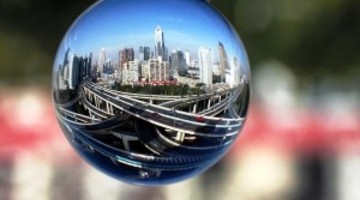When life returns to normal, it will be a new normal. Whilst waiting patiently for that new normal to arrive, Logie Group has collaborated with Mystic Meg to predict how infrastructure finance will have been permanently changed by the World’s response to the Covid 19 virus. If we’re right, you heard it here first. If we’re wrong, we will invoke JM Keynes and argue that, if the facts change, so may our opinion.
First, country by country, there will be some almighty coming out parties. After that, several asset classes will see changed risk profiles.
Airlines and airports
Huge numbers of employers and employees alike will have newly learned that, whilst a video conference between, say, HK and Singapore may not be quite as impactful as turning up in person, a lot of times it will be more efficient once you factor in the time and cost of everyone getting there. The lockdowns interrupted a relentless increase in global passenger numbers but this week Lufthansa closed its discount carrier Germanwings and warned that it will take “years” until World-wide demand returned to pre-crisis levels. (Other airlines have not been looking as far into the future.) Frequent fliers flying less will hit airlines hard since they make much of their profits from Business Class.
The project economics of most airports reflect the fact that they are as much specialist shopping mall as they are regulated utility: passengers need to kill time and want to treat themselves even though nowadays many accept that duty free shopping may no longer be cheaper than online or even the High Street (the Philippines has its own very different market dynamics for duty free). Governments desperate to boost tax revenues will take another look at the leakage that is duty free shopping. Withdrawing this privilege would seriously impact airports’ revenues and may or may not have been contemplated in their concessions. Generation Research estimates that global duty free and travel retail sales in 2018 were $79 billion so this matters.
Airports were coming under pressure anyway due to environmental concerns. In Europe, increasing numbers of passengers were turning to medium haul rail. In February, the UK court of appeal ruled that plans for a third runway at Heathrow were illegal because ministers had not adequately taken into account the government’s commitments to tackle the climate crisis. In the same month, North Somerset council cited environmental concerns for rejecting Bristol airport’s plan to expand annual capacity by a mere 2 million passengers.
Rail
Rail is the newly rediscovered poster child of Climate Change.
Employers and employees alike will also have learned that working from home can be beneficial in many service industries. There is still a suspicion that working from home enables workers to skive off – although anecdotal evidence suggests that most are remarkably diligent. We hesitate to suggest this but is leaving that video camera on any more intrusive than being surveiled by colleagues in a conventional office? With secure communications and protocols now in place, that gruesome peak hour commute on short haul / urban rail will be less necessary; emissions will drop; and, because a large proportion of infrastructure is built so to address only peak demand, this peak can be a second one to be flattened and much capex saved.
As mentioned above, medium haul rail will become more popular.
Long haul rail will remain uncompetitive as against air travel and ruinously expensive, even if the Chinese build it, because of the cost of land acquisition. (Surely the £106 billion cost of HS2 can be better spent on Reasonable Speed networks spread across the UK?)
In passing
As the UK was already finding with Brexit, global supply chains had become hugely complex and fragile. Many companies will consider the cost worthwhile if they shorten these, cross fewer borders, carry more stock and thus make themselves less vulnerable. The Economist predicts that cross – border business investment may drop by 30 – 40% this year. Then it will bounce back to some extent but, we predict, not to the full extent. That means more local manufacturing and less global shipping.
If dreaded hot desking can be addressed, demand for commercial real estate in expensive CBDs will fall: the implications could be significant.
Cruise lines have been traumatized by the virus: Carnival, still investment grade, has just issued $4 billion of three – year bonds secured over its ships paying 12% p.a.! But they will recover – all they need to do is introduce rigorous testing, both when onboarding and thereafter, as well as provide for on-board isolation of anyone infected.
Admiring the suddenly clear waters in Venice or satellite photos showing the drastic reduction in NOX pollutants in central China and Lombardy illustrate that the planet can be cleaned up. The tax paying public will be more willing to pay for this even if the tragedy of the commons remains in that everyone wants a cleaner planet if they can get someone else to pay for it.
And, with oil prices collapsing, governments should jack up fuel duties so that, once prices return to their new normal, whenever or whatever that means, fossil fuels will then be sufficiently costly as to incentivise switching to cleaner ones.
Financing
Governments are suddenly spending big amidst significant uncertainties. The risks attaching to infrastructure now appear not so indigestible.
The UK was a pioneer of the Private Finance Initiative / Public Private Partnerships where the private sector is paid to assume some of the risks associated with building and operating infrastructure. But the UK government gave up on the idea in October 2018 which was surprising. Logie Group has long advised that, for PFI / PPP to succeed, you need to clearly define the asset / service being provided; structure sufficient flexibility into the concession such that the only risks passed on to the private sector are those that it is able to control or, at least, understand and accommodate; and that the returns are similarly reasonable across a range of potential outcomes. Governments can indeed share risks with the private sector in most infrastructure sectors – except perhaps rail where there is a risk that no one ends up being seemingly responsible.

There is a chengyu (four character old Chinese proverb) about a peasant having to stand a long time on a hillside with his mouth open before a roast duck flies in. Maybe it originated with Confucius. Paul Theroux passed it on in 1988. When Chris Patten was the last British governor of Hong Kong in 1992 – 7, his staff would invent Chinese proverbs (someone has to) if they couldn’t find a suitable pre-existing one. Here, it would seem, there was no need. Being generous, this one reminds us that the benefits of investing in infrastructure are considerable but long term.
Logie Group therefore forecasts that, arising from the World’s response to this virus, there will be major changes in some asset risk profiles and in how they are financed. An understanding of this will be needed now more than ever and, as ever, there will be first mover advantage to those investors and lenders who are prepared.








